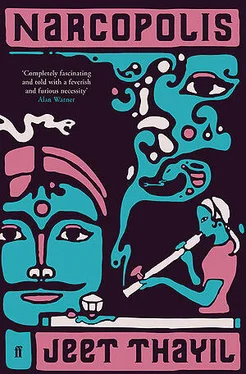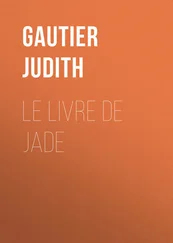*
When I got back to the apartment in Bandra, I looked at the papers I’d salvaged from Dimple’s house, the magazine advertisements for Duckback rubber sheeting and semi-automatic washing machines and Sri Balaji’s instant bumper lottery, first prize Rs. 10 lakhs; the photographs of congressmen and criminals; the opinion pieces on sex and money and the city’s crumbling infrastructure, and it struck me that the pieces could, with minor changes, be reprinted in that day’s newspaper and no one would be any wiser. In a notebook I found unfinished lists: the names of night watches; a comparison of smells, for instance, the smell of cordite against that of sulphur; several definitions of the word remorse ; and handwritten pages, a story or dream, titled ‘The Enfolding’, in which a small child falls asleep in a house from which the adults have vanished. The child runs around the house in panic. Then he learns. He waits in the empty rooms and maze-like gardens. He tends the flowers. He grows into young adulthood. He keeps himself fit and alert and he waits. He lives in ‘a world’, wrote Dimple, ‘in which only pain was real’. Most of the story was taken up by the closing paragraph in which the boy waits by a parapet near the ocean. Behind him, the old house and the sky reeling with birds. He looks out to sea, waiting for the lights of a ship. He imagines he can see tiny yellow or blue pinpoints that grow larger in the night but vanish with first light. Who is he waiting for? How long must he endure the rigors of his vigil? What are the bearable consequences of loneliness? These questions are raised in the course of the story, though they are nowhere answered. I fell asleep reading and late at night I heard footsteps on the ceiling, things dropping, coughs and whispers. I woke up saying, Who is it? I thought I heard voices outside my door. My neighbours on the left were a family of four in a space as small as mine. I never saw the father, a labouring man who came home only to sleep. They kept their doors and windows open all day, there was no other way to live in the tiny space. The younger child, a girl of about six, read her homework aloud. I sat on the couch in my room and listened to her real voice. ‘When the sun rises we say good morning.’ When I opened my door at noon, she and her mother looked at me with curiosity, or pity. If I could hear them, they could surely hear me, talking with my invisible guests. I introduced myself. I said: Ullis is my name. These are my friends. This is what we did. These are the things we said and dreamed. Mother and daughter looked at me and then they looked behind me, as if they too could see the shapes that filled the air. Late that night, after my neighbours had gone to bed, I cleared a space in the small room and set up an oil lamp and the pipe. This is the story the pipe told me. All I did was write it down, one word after the other, beginning and ending with the same one, Bombay.
Jeet Thayil was born in Kerala, India in 1959 and educated in Hong Kong, New York and Mumbai. He is a performance poet, songwriter and guitarist as well as a writer, and has published four collections of poetry. He is the editor of The Bloodaxe Book of Contemporary Indian Poets (2008). He currently lives in New Delhi.












